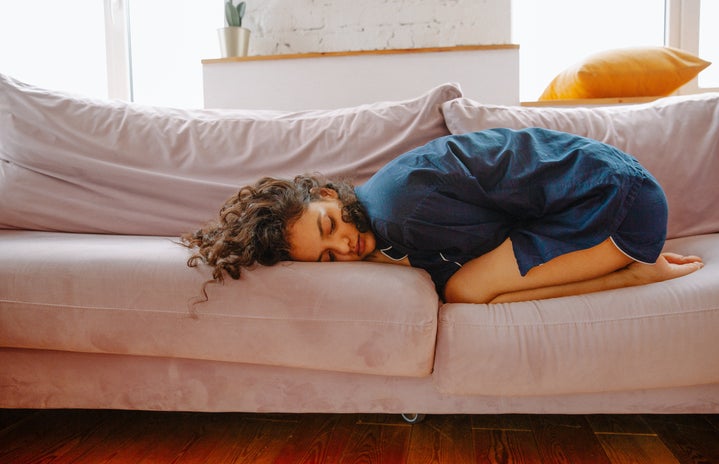What happens when you simply cannot fall asleep?
Oftentimes, your period makes you want to crawl in a dark hole and sleep for the whole week. Sleep disturbances are common in many people who experience menstrual cycles, but sometimes it can be a signal to a much larger issue.
Seven to ten of women say their sleep cycles change just before their periods begin. Common symptoms are trouble falling, and staying asleep, yet feeling fatigued throughout the day.
During menstruation, your body goes through many different changes on a biological level. There are monthly variations in your hormones which regulate reproductive functions. It is potentially related to your progesterone levels. This has effects outside of directly impacting reproductive functions, including mood regulation, body temperature, autonomic nervous system, respiration, and sleep. Altered melatonin rhythms do occur during menstruation, and the rapid eye movement phase can be reduced.
Sleep and reproductive function have a biodirectional relationship. Disrupted sleep is associated with altered menstrual cycles, which could impact reproductive capabilities. Poorer sleep quality during menstruation and pre-menstruation is common in those who experience painful cramps.
It’s important to monitor all of your menstrual cycles and symptoms to fully understand your body and any health concerns that may be apparent. Sleep disturbances are common during the menstruation and pre-menstruation phase, and if this is affecting you, it may be smart to cut out caffeine and alcohol during this time.
Still, just because something is common, does not mean it shouldn’t be taken seriously. If menstrual-related sleep patterns are significantly affecting your quality of life, reach out to your general practitioner or gynecologist about what further steps you should take.
Further Readings
Fiona Baker and Kathryn Lee’s study “Menstrual Cycle Effects on Sleep”.
Sleep Health Foundation’s “Menstrual Cycle and Sleep”


